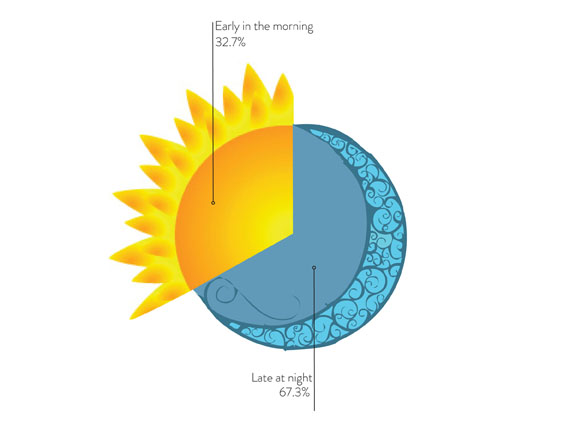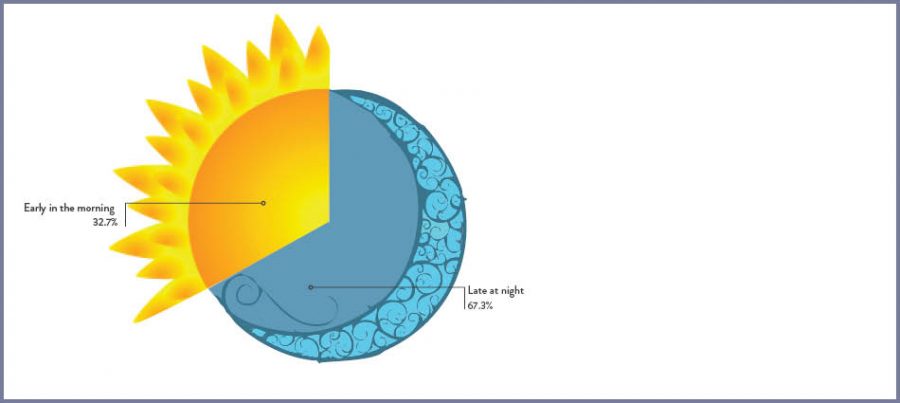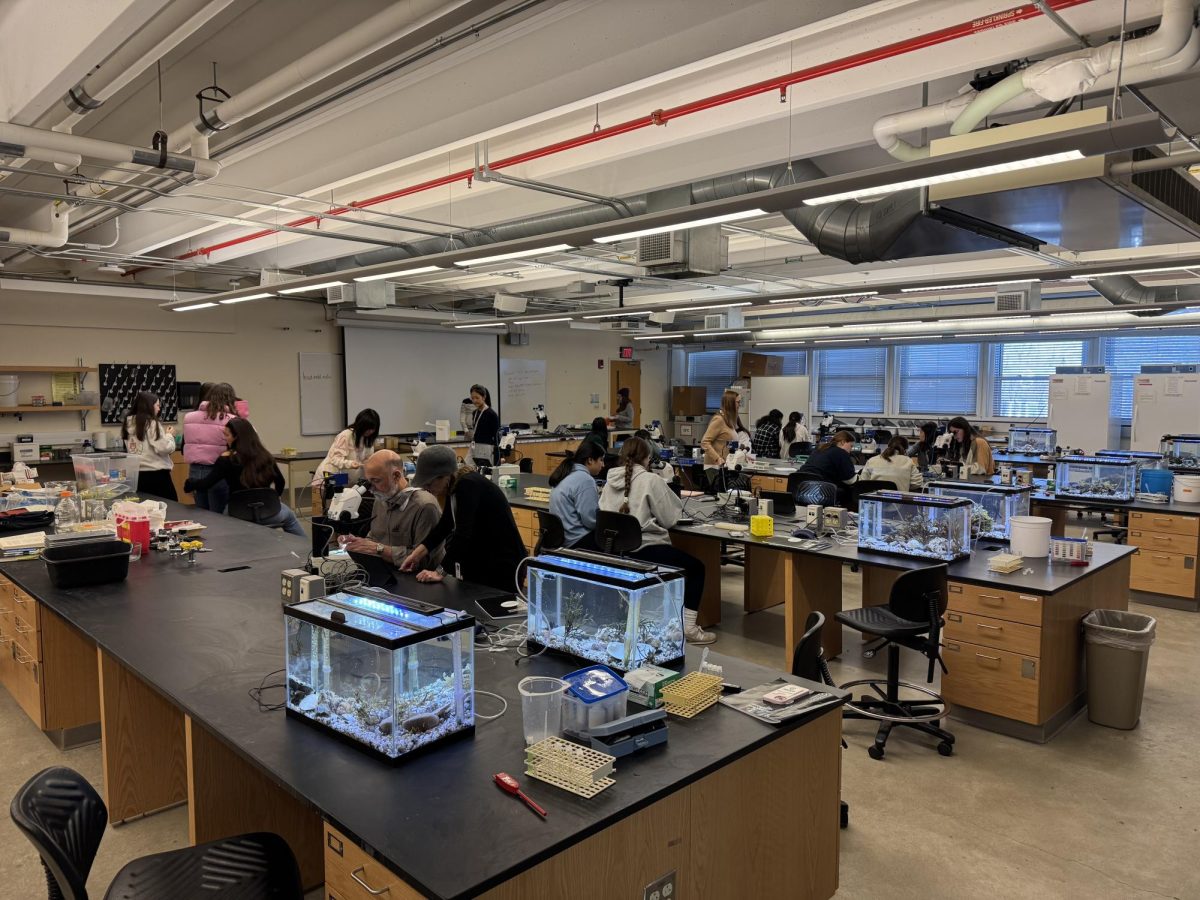
Students’ work schedules altered by technology and social networking
When junior Renee steps into her house, bags slung on her back, shoulders hunched over from too-many textbooks and insufficient amounts of sleep, she slips off the educational fetters and shuffles to the couch. After a brief nap, Renee, slightly rejuvenated, retrieves her schoolwork and prepares for another grueling night.
The scene is all too familiar for countless girls at Hockaday, where rigorous academics and a petted pride in competition rear students to acquire strenuous—but necessary—study habits.
Girls these days are busy enough trying to run apace with the daily workload, but to some, the dawn of the technological era and the invention of social networking have only hindered, not helped, their grades.
“If I don’t want to be distracted by my phone I have to put it out of eyesight or turn it off or put it in another room so I have no idea what’s going on,” Renee said, who undergoes a routine checkup every night on Facebook, Twitter and Tumblr before she begins her homework at 9 p.m.
As the human race evolves and becomes codependent on technology, media and social networking are finding a larger presence in the home. With such proximity to entertainment, kids are foregoing their studies in lieu of funny videos on YouTube or Facebook stalking.
A study conducted by Stanford University, co-authored by Anthony Wagner, found that participating college students who were more connected to media multitasking performed worse on the test than those who did not. The reason, they concluded, was that the heavy media multitaskers are more “sensitive to distracting stimuli.”
However, media is neither a modern nor an unusual interruption to studying: since its invention in the late 1920s, television has been a constant source of entertainment. Upper School Science teacher Richard Taylor admitted that “TV was a big distraction” when he was in high school.
The problem nowadays, though, is the omnipresence of television, radio, Internet, etc., and Hockadaisies must fight inescapable temptation every second. Whereas background noise and the proximity of others can also interrupt some people’s focus, these can easily be avoided with noise-cancelling headphones or solitary confinement. It is a nearly hopeless effort to try escaping from the Internet.
Friends also have become a larger disturbance over the years with the inception of the iPhone. With easy accessibility, even the merest of acquaintances can have a devastating effect on your study life. For this reason, senior Nina prefers to wake up early in the morning to finish her homework because “none of [her] friends are awake that early.”
Research shows that the brain actually functions differently with these new kinds of environmental stimuli. We receive pleasure when sonorous dings and notifications activate Dopamine, the brain’s reward system. Addicted to gratification, humans are beginning to pay more attention to their social connections rather than their work, according to the same test by Stanford.
Multitaskers, in this case the people who try to study the theorems of quantum physics while simultaneously Facebook stalking, also learn and retain information differently than those who have shut down all distractions. When multitasking, they boot up their striatum, the part of the brain that employs procedural memory that encodes learning through habit. Their focused counterparts, however, use the hippocampus, or declarative memory circuit, which is essentially able to take what they’ve learned and apply it to broader situations.
“I really worry about the future,” Upper School English teacher Janet Bilhartz said, who also considered herself “lucky” that her youngest son graduated in ’05 when “even then there weren’t that many distractions.”
“I have a hard time seeing things getting better. Reading requires sustained attention. If you’re used to constant stimulation, will reading bore you? And what effect does that have on critical thinking? I’m a big advocate for young children to turn off everything electronic. Let them play.”
– Laura









